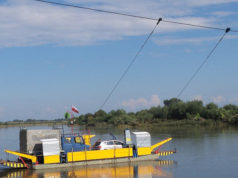High Court Demands Accountability in Gobind Sagar Lake Environmental Case; Chief Secretary to Monitor Action Against Gobind Sagar Lake Dumping
Shimla – The state High Court has issued a stern order requiring a fresh status report on the illegal dumping in Gobind Sagar Lake, accompanied by a penalty of Rs 50,000. This action comes as part of the court’s demand for greater accountability in the handling of the environmental case, which has drawn significant public concern.
The division bench, consisting of Chief Justice MS Ramachandra Rao and Justice Satyen Vaidya, passed the orders while presiding over a public interest petition filed by Madan Lal, the general secretary of the Fourlane Displaced and Affected Committee. The petition highlighted the grave environmental damage caused by the illegal dumping linked to the widening of the Kiratpur-Manali road, a project overseen by the National Highway Authority of India.
In their ruling, the justices expressed their dissatisfaction with the status report submitted by the forest department. The report failed to provide adequate reasons for the lack of punitive action against the offenders and instead focused on minor departmental actions. The court interpreted this as a deliberate attempt by the government to avoid addressing the issue substantively and to protect the culprits involved.
“The government’s reluctance to answer the court’s inquiries suggests an intention to shield those responsible for the illegal dumping,” the bench stated. They emphasized that the Chief Secretary must take on the responsibility of ensuring strict and effective action against the guilty forest personnel and oversee the resolution of the matter.
The High Court’s order underscores the environmental significance of the case, asserting that government officials’ inaction against those harming the environment equates to a failure in fulfilling their constitutional and legal obligations. The court highlighted that the government must make every effort to protect and improve the environment, as well as to safeguard the wildlife and aquatic life of the country.
The bench also noted that punitive measures are essential to deter future violations and to uphold the rule of law. By demanding a fresh status report and imposing a financial penalty, the court aims to ensure that the issue receives the serious attention it warrants.




